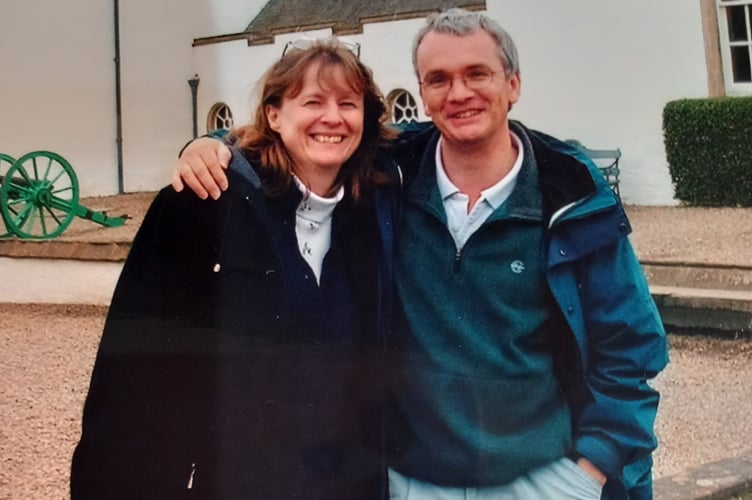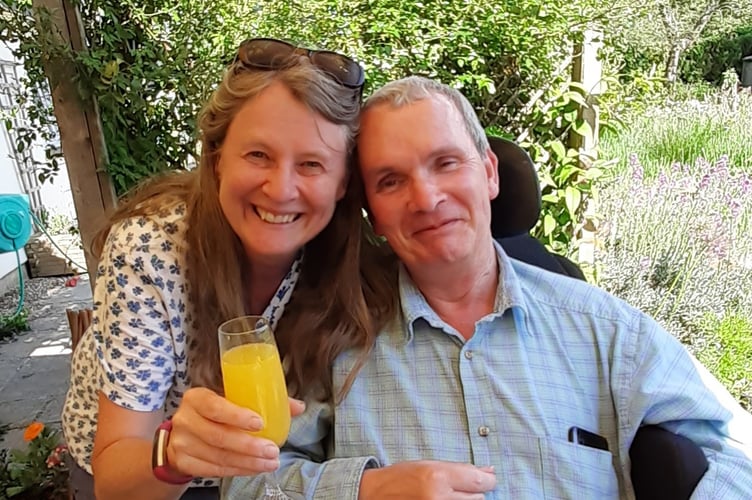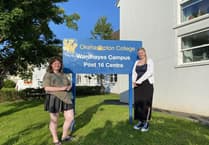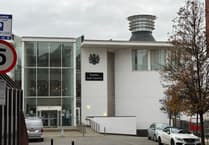“A true, gentle gentleman, loyal and dependable…hardworking, kind, loving and generous, placid, with a wonderful dry wit.” This was how Jane Taylor described her husband, Gilbert Taylor, at a life celebration service last week, following his death in August.
Gilbert, known as Gilby to his friends and family, had long battled with a rare degenerative form of multiple sclerosis (MS), but his disability was certainly not the defining feature of his life. Those who knew him personally remember him as a brilliant scientist, a patient teacher, a loyal friend, and a man of great courage and wit. However, readers of this paper may very well remember him most of all as the man carried to the top of Belstone Tor by the North Dartmoor Search and Rescue Team in September 2021, raising £10,000 for the mountain rescue group.
“There was not a ‘dry eye in the house’ as the rescue team stood him up from the stretcher – as Gilby had requested ‘that they help him to stand with his two feet on the top of the tor’,” said Jane. The event made local and national headlines, including an appearance on BBC Breakfast.
In fact, Gilby’s disability did not stop him from living life to the full – albeit with some adaptations. He appeared in this newspaper several times for his ventures, making the front page twice. Gilby “test drove” the new disabled access ramp at Okehampton bookshop Dogberry & Finch Books; managed to tick a visit to Bletchley Park – home of the Enigma codebreakers – off his bucket list and enjoyed a light aircraft flight from Bodmin Airfield to Plymouth and back with the support of a neighbour.

In his later years, he joined Okehampton Men in Sheds. His fellow Shedders welcomed him with open arms, collecting him each week in their wheelchair-accessible minibus and even taking him on a trip to Bude beach, where he was able to dip his toes in the sea.
A lover of science fiction, Gilby became known, in his retirement, for his eye-catching mobility scooter, which he had had spray-painted with Star Trek’s Enterprise spaceship and soon earned the nickname ‘the Admiral.’ He was also keenly interested in robotics and built and programmed several during his retirement.
But that was after the devastating diagnosis of primary progressive MS in 2009. Gilby’s life before the illness was equally impressive and exciting.
Born in 1959 to the head of the herbarium at Kew Gardens, he was named after the 18th-century botanist Gilbert White – often described as the Western world’s first ecologist – but botany was not to be Gilby’s path in life. Instead, he was a talented mathematician and theoretical physicist, so much so that he taught his fellow classmates in the sixth form when their maths teacher went on long-term sick leave, and no replacement could be found.
Jackie Whitehorn, Gilby’s friend for over 50 years, credited him with her achieving the grades she needed to attend university. “There is no doubt that without Gilbert’s help I would not have got the grades I needed to study here at Exeter University. I owe him such a huge debt of gratitude - and not least, my career in teaching maths at Okehampton College, ” she said at his life celebration.

Gilby went on to study mathematics and theoretical physics at Exeter, continuing to support those in need of help in maths and physics. Sometimes, he would become so engrossed in his studies that he would find himself locked in the physics block library, forcing him to escape through a window.
Following his graduation, Gilby went to work for Marconi Space and Defence Division (later part of BAE Systems). Much of his work there remains classified and, Jane said, “ever the gentleman, he took those secrets to his grave.” What is known is that he was involved in a special project organised by the Ministry of Defence (MoD) to develop Cold War defence solutions, and later, became a BAE trouble-shooter travelling to MoD sites across the UK to fix faulty systems. But MS fatigue forced Gilby to retire early in 2013 at the age of 54, despite the company’s every effort to cater for his needs.

Gilby’s view on death was equally as scientific, mirroring that of Professor Brian Cox – there’s comfort in knowing that while we may die, our atoms will remain.
As generous in death as in life, Gilby left instructions for his brain and spinal cord, the organs most affected by MS, to be sent to Imperial College London for research. As Gilby said: "If we are to beat this disease, we need to give the scientists the material they need for their research".
One of Gilby’s robots will also be donated to Okehampton College to help students learn software programming. Miro-E, bought for Gilby when he was no longer able to use his hands to code, is a sophisticated machine with touch and sound sensors, and its AI software is particularly useful for children with an autistic spectrum disorder (ASD).
He will be very much missed in the area; two members of the North Dartmoor Search and Rescue Team attended the celebration of Gilby’s life.





Comments
This article has no comments yet. Be the first to leave a comment.